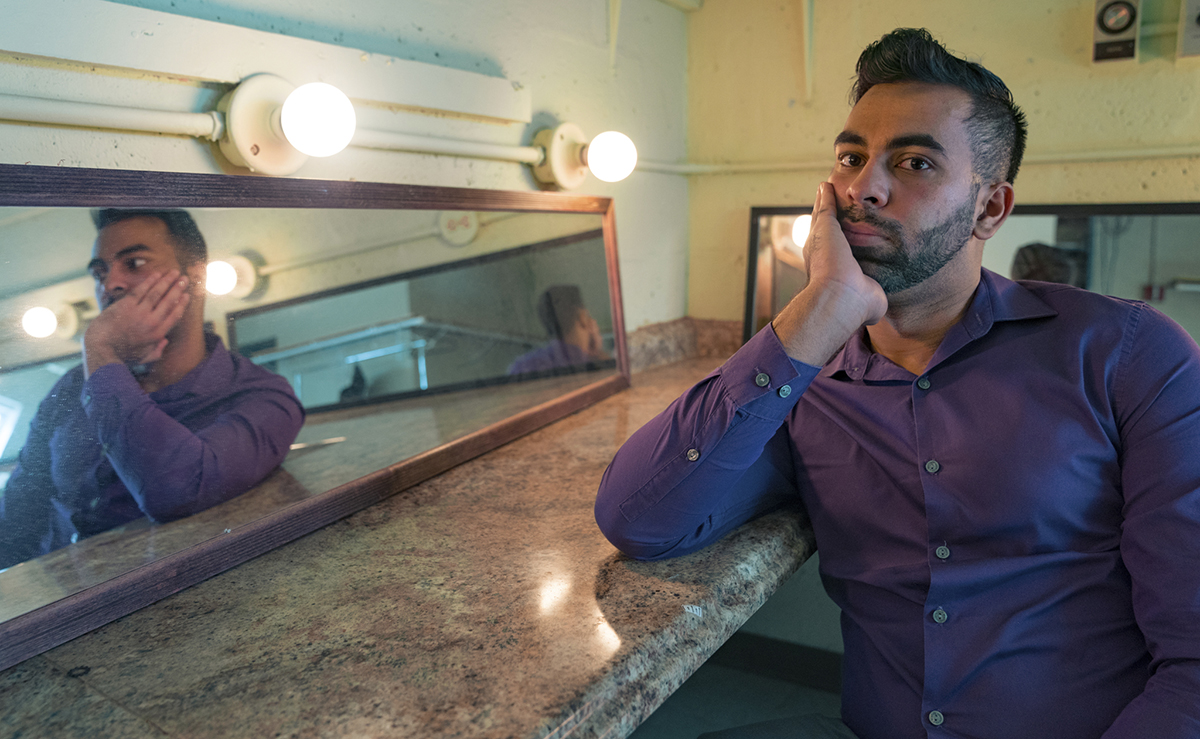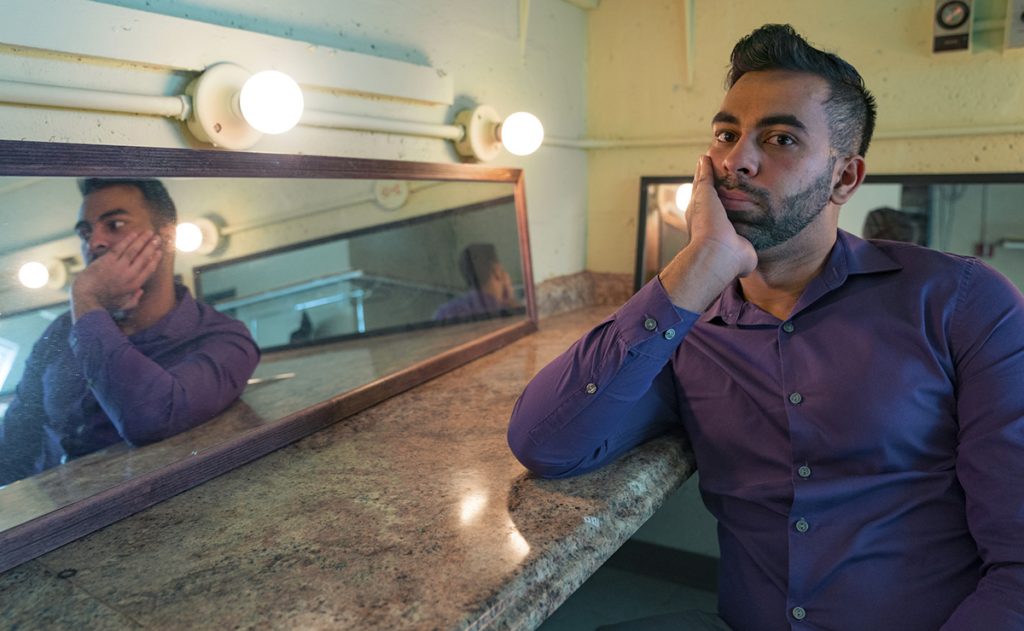

Vasisth Sukul is a University of Miami graduate of Surinamese descent born and raised in Miami. He graduated from UM in May 2017 with a bachelor’s degree in motion pictures. For his senior project, Sukul made “Zindagi,” a short film about a widower who is considering ending his life when a strange woman–who is actually a goddess in human form–visits him and gives him new hope.
The Miami Hurricane spoke with Sukul about “Zindagi” ahead of its premier and to reflect on his growth as a filmmaker.
TMH: What inspired the film?
VS: A girl broke my heart. That was all the inspiration I needed.
TMH: Did you pull from your own heritage and cultural background for this film?
VS: Some of my Hinduism goes into the context of the film, as I view the character of Zindagi to be a reincarnation of Brahma (God). God, in our religion, is believed to be reincarnated in many different forms.
TMH: Why was it important for you to highlight underrepresented cultures and identities in this film?
VS: I purposely tried to incorporate minorities into the cast and crew of this film because Hollywood typically puts minorities in minor roles. I wanted to create a film that did the opposite.
TMH: What was the creative process for this film like?
VS: I had been thinking about and writing the script for this film throughout the first semester of my senior year. When my final semester rolled along, I made it my final project for CIM 451 with Professor Jeffrey Stern. The class helped me hone in on the story of Zindagi.
The project itself extended well beyond the scope of the class. We continued editing the film seven months after the class finished. Zindagi was really a culmination of my efforts, in partnership with my producer Jaydev Hemrajani, who also plays the lead role of Suka. The whole process, from conception to final edit, took 14 months.
TMH: In the film, the widower Suka welcomes Zindagi, an almost sprite-like character, into his home rather quickly. Why does he let her in so easily?
VS: Suka has nothing to live for when he meets Zindagi. He subconsciously doesn’t want to end his life and so when he meets her, he honestly just wants to find something to live for in her.
TMH: What is the significance of the white lily in the film?
VS: The white lily represents death. Zindagi means “life” in Hindi. She picks up the white lily and looks at it when they meet in the garden. She leaves it in the noose so that Suka can choose for himself if he wants to choose life or choose death. Because Suka throws away the white lily, he chooses to live just a little bit longer.
TMH: Do you have a favorite moment in the film?
VS: The final shot with Suka on the roof. My good friend Jaydev had to act depressed during the whole movie and it was heartwarming to see a smile back on his face.
TMH: What do you want audiences to take from this film?
VS: The silver lining of lost love is that you learn how much you can love. Although they may be gone, your heart will be forever changed and that is something that should never leave you.
TMH: Tell me a little bit about Imaginary Club and its relation to your film work.
VS: I visited a center for children with mental disabilities in Suriname when I was 17 and volunteered there for a couple of weeks. They were playing with the same old puzzles every day with incredibly little resources. When I was 18, I decided to start Imaginary Club as a charity that helps to envision and act to make a better world.
We act to make the world a better place by helping children with mental disabilities in Suriname. We envision a better world with our videos that have a positive message. These films are why I am in the business of film. It’s a mass communication tool that, if used effectively, can truly make a difference.
TMH: What has your growth as a filmmaker looked like over the course of your UM years?
Honestly, I came to UM barely knowing anything, film-wise. All I had done before UM was make a couple of short videos on YouTube. By the time I left, I had learned how to edit on emotion from Professor Ali Habashi and how to tell a story using the power of sound from Professor Stern.
Now, I started a production company called U&S Productions with Joel Glickman, a fellow UM graduate who was the First Assistant Director on Zindagi. We’re shooting mainly commercial videos. I hope to one day produce feature films.
How did the PBS deal happen? Have any of your other works aired on TV before?
Jaydev was on the set of another film, and he filled out the application for WPBT’s Filmmaker Project on the last day. We got selected, they interviewed me, and now we will be airing on TV. This is my first film on TV and hopefully not my last.
Will there be a watch party?
I will be watching with my close friends and family.
Zindagi will air Tuesday, Jan. 23 at 7:30 p.m. on WPBT2 and on Monday, Jan. 29 at 5:30 p.m. on WXEL. For more information on Imaginary Club, visit imaginaryclub.com.





